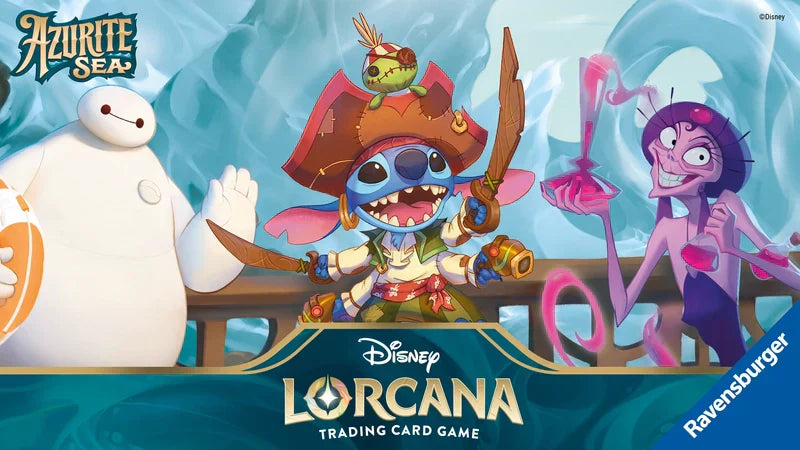
Disney Lorcana Glossary | The Gamers Lodge Guide
Share
Glossary of Disney Lorcana Terms and Mechanics
Table of Contents
- Card Types
- Game Zones
- Game Actions and Phases
- Keywords and Abilities
- Ink and Resources
- Strategy Terms
- Other Terms
If you want to browse our Lorcana collection you can do so by clicking here.
Card Types
- Character
- A permanent with Strength, Willpower, and often a Lore value. Characters can quest, challenge, and use abilities while in play.
- Item
- A permanent that stays in play and provides abilities, often activated. Items can usually be used the turn they are played unless an ability says otherwise.
- Action
- A one-time effect. Announce and pay its cost, resolve its effect, then put the card into your discard pile.
- Song
- An Action subtype. You can pay its ink cost as normal or exert an appropriate character to sing it for free if the song allows it. Some songs use Sing Together so multiple characters can exert to meet the total.
- Location
- A permanent that stays in play and can have abilities, a move cost, Willpower, and sometimes Lore. Your characters can move to your locations by paying the printed move cost. Opponents can challenge a location to deal damage to it. Locations do not deal damage back.
Game Zones
- Deck
- Your face-down stack of cards. In constructed play a deck has at least 60 cards. You may include up to two ink colors and up to four copies of any card with the same full name.
- Hand
- Cards you have drawn. Hidden from opponents unless an effect says otherwise.
- Inkwell
- Your resource area. Cards placed here face-down each count as one ink. You may put at most one inkable card from your hand into your inkwell each turn.
- In Play
- The play area where characters, items, and locations exist once played.
- Discard Pile
- Your face-up pile for used Actions and banished cards unless an effect states a different destination.
- If you want to learn more about Game zones and getting started then read our how to play guide.
Game Actions and Phases
- Turn Structure
- Each turn has three phases in order: Beginning, Main, End of Turn.
- Beginning Phase
- Ready your cards, resolve any start-of-turn effects as specified, then draw a card.
- Main Phase
- You may take turn actions in any order as allowed by the rules and card text.
- End of Turn
- End any effects that last until end of turn, then the next player begins their turn.
- Put a Card into Inkwell
- Once per turn you may place an inkable card from your hand face-down into your inkwell.
- Play a Card
- Announce the card, pay all costs, and resolve its instructions. Characters, items, and locations enter play. Actions and songs resolve then go to the discard pile.
- Quest
- Exert one of your ready characters to gain Lore equal to its Lore value.
- Challenge
- Exert one of your ready characters to challenge an opposing exerted character or an opposing location if allowed. Each challenging and challenged character deals damage equal to its Strength to the other. Locations do not deal damage back.
- Move a Character
- Pay a location’s move cost to move one of your characters to that location if allowed by the card text.
- Use an Activated Ability
- Pay the listed cost then resolve the ability. Costs can include ink and exerting the card.
- Ready
- A card is upright and able to act. Cards you control ready at the start of your turn unless an effect says otherwise.
- Exert
- Turn a card sideways to show it has been used or to pay a cost. Exerted characters are valid targets to be challenged.
- Entering Play Restrictions
- Characters cannot quest or challenge on the same turn they were played unless an effect such as Rush allows it.
- Mulligan
- Also called altering your starting hand. After drawing your starting hand, you may put any number of those cards on the bottom of your deck face-down and then draw the same number. Shuffle afterward.
Keywords and Abilities
Keywords are bolded terms on cards that represent specific rules. Reminder text on cards summarizes them but the full rules apply as defined here.

- Bodyguard
- Opponents who would challenge one of your characters must choose a character with Bodyguard if able.
- Brave
- This character can challenge chosen characters that would normally be out of reach due to restrictions set by other effects.
- Challenger +X
- This character gets +X Strength while it is the challenger in a challenge.
- Deflect +X
- When this character is challenged, the challenging character immediately takes X damage before regular damage is dealt.
- Evasive
- Only characters with Evasive can challenge this character.
- Persistent +X
- If this character would be banished, you may pay X to return it to your hand instead.
- Reckless
- This character cannot quest and must challenge each turn if able.
- Resist +X
- Damage dealt to this character is reduced by X. If a location has Resist, reduce damage to that location by X.
- Rush
- This character can challenge on the same turn it was played.
- Shift
- You may pay the listed Shift cost to play this character on top of one of your characters with the same name instead of paying its normal cost. The new character keeps any damage and status that was on the previous version.
- Singer N
- This character can exert to sing a song with cost N or less for free. The character counts as cost N for singing.
- Sing Together
- On some songs, you may exert any number of your characters whose combined costs meet or exceed the song’s listed value to sing it for free.
- Support
- Whenever this character quests, you may add this character’s Strength to another chosen character’s Strength this turn.
- Vanish
- When an opponent chooses this character as the target of an Action, banish this character after that Action resolves.
- Ward
- Opponents cannot choose this character when resolving effects. Ward does not stop being challenged.
Ink and Resources
- Ink
- The resource used to pay ink costs on cards and abilities. Each face-down card in your inkwell provides one ink.
- Inkable
- A card with the inkwell symbol around its cost. You may place at most one inkable card into your inkwell each turn.
- Inkwell Symbol
- The small symbol around a card’s cost that indicates the card can be placed into the inkwell.
- Ink Color
- The affiliation shown on a card by its ink symbol and color. The six inks are Amber, Amethyst, Emerald, Ruby, Sapphire, and Steel. A constructed deck may include up to two ink colors.
- Cost
- The number in the upper left of a card that you must pay, usually with ink from your inkwell. Some abilities and alternate costs instruct other ways to pay.
- Lore
- Your score toward victory. When your character quests, you gain Lore equal to its Lore value. The first player to reach 20 Lore wins the game. Some locations also provide Lore each turn as specified on the card.
Strategy Terms
These are widely used community terms. They help with understanding play styles and deckbuilding but are not official keywords.
- Aggro
- A fast strategy that aims to gain Lore quickly or remove opposing characters early using low-cost, efficient cards.
- Control
- A slower strategy that removes threats, denies Lore, and wins later with superior resources or a few powerful cards.
- Midrange
- A balanced strategy that applies pressure in the mid game while maintaining strong board presence.
- Tempo
- The pace and momentum of the game. A tempo play advances your position efficiently while setting the opponent back.
- Ramp
- Effects that increase your available ink faster than one per turn by putting extra cards into your inkwell or otherwise accelerating resources.
- Mill
- A plan to empty the opponent’s deck so they cannot draw when required.
- Bounce
- Return a card from play to its owner’s hand. Useful for gaining tempo by forcing a replay and re spend of ink.
- Meta
- The current environment of popular and successful decks. The metagame shifts as new sets release and players adapt.
- Curve
- The distribution of card costs in a deck. A smooth curve helps spend ink efficiently each turn.
- Combo
- A plan that relies on two or more cards together to generate a strong or game winning effect.
- Flooding
- Drawing too many inkable cards and not enough action or threat cards, leaving you with resources but little pressure.
- Bricking
- Drawing too few inkable cards early or otherwise unplayable hands that stall your plan.
- Removal
- Any effect that eliminates a character from play by banishing, bouncing, or similar.
- Board Wipe
- An effect that clears many or all characters at once and resets the board.
- Power Creep
- A trend where newer cards feel stronger than earlier ones and can push older options out of decks.
- Staple
- A widely used card considered core to many decks due to efficiency or flexibility.
Other Terms
- Banished
- Removed from play and placed into the discard pile, usually due to taking damage equal to or greater than Willpower or by a card effect.
- Damage
- Marked on characters and locations. When damage on a character equals or exceeds its Willpower it is banished. Damage persists until healed or the card leaves play.
- Damage Counter
- A token or marker used to track damage. One counter typically equals one damage unless specified otherwise.
- Strength
- The amount of damage a character deals in a challenge.
- Willpower
- The amount of damage a character or location can take before being banished.
- Lore Value
- The number of Lore a character grants when it quests or, if printed on a location, the Lore that location grants as specified on the card.
- Game State
- The overall position of both players including cards in play, cards in hand, Lore totals, and other relevant information.
- Illumineer
- The term for a Lorcana player.
- Topdeck Mode
- A position where players rely on the top card of the deck each turn because hands are low or empty.
- One of / Two of
- Deckbuilding shorthand for how many copies of a card are included.
- Proxy
- A placeholder card for casual testing that is not legal in sanctioned play.


